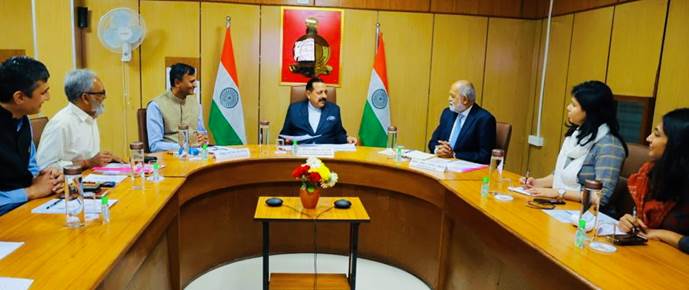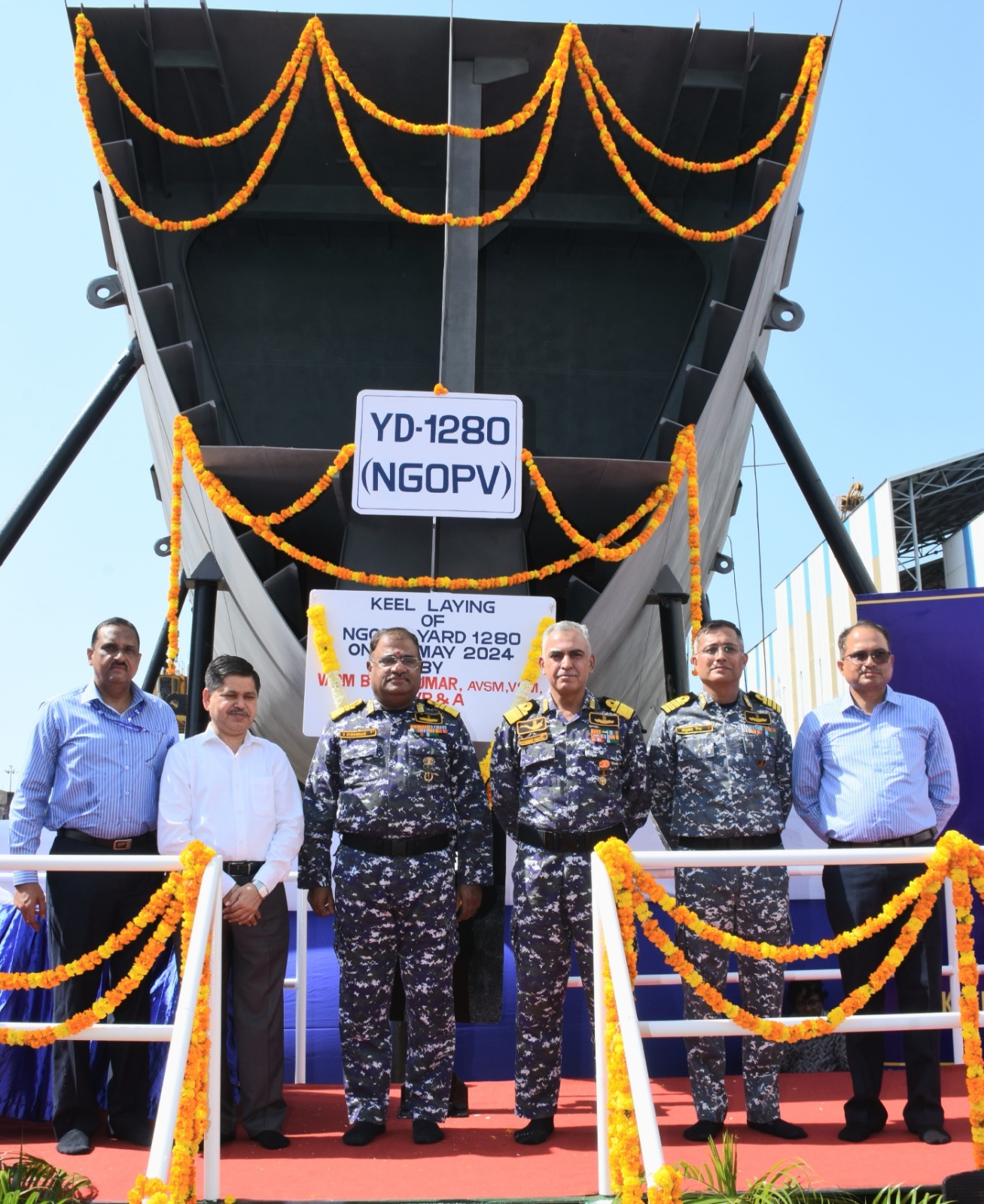Civil servants’ capacity building to involve latest geospatial technology: Union Minister Dr Jitendra Singh
Author: BI Bureau

New Delhi: Union Minister of State PMO, Personnel, Public Grievances, Pensions, and Atomic Energy and Space Dr Jitendra Singh on Thursday announced that in keeping with Prime Minister Narendra Modi’s penchant for technology driven governance, the Civil Servants’ capacity building will involve the latest geospatial technology, which is one of the most recent technologies available to us as well as the world over.
Dr Jitendra Singh said that he has always been speaking about wider integration in working and the whole of Govt concept, and added that today he feels gratified to witness integration between two of the important Ministries associated with him, namely, the Personnel/DoPT and Science and Technology/ DST.
The Union Minister said that the NIGST – National Institute of Geo-Informatics Science and Technology – has the potential and expertise in Geospatial technologies to play a pivotal role in building the civil service. He said that as per the National Geospatial Policy (NGP) 2022, online courses in geospatial science and technology areas are to be made available through iGoT Karmayogi platform.
The Minister visited the facilities of the Institute in Hyderabad and interacted with the faculty and trainees there. A detailed presentation was also made before the Union Minister about NIGST and its various facilities, courses conducted etc.
During his interaction at NIGST, Dr Singh said that NIGST can augment the civil service training eco-system with competencies and role based education in the areas of Basic GIS, Drone Survey & Mapping, GIS Analysis, Land Surveying, Cadastral Mapping, GNSS Surveying, Digital Mapping, LIDAR Mapping, and Utility Mapping, 3D-City Mapping, Geoid Modelling, and CORS Network etc.
Dr Jitendra Singh noted that, under Prime Minister Modi’s leadership, the National Geospatial Policy (NGP), 2022 has laid down the overarching framework for holistic development of the Geospatial ecosystem to support national development and economic prosperity. He said that it has laid emphasis on developing the Geospatial skill and knowledge standards across the country because the need for geospatial professionals, their training and development in diverse areas of geospatial and allied technology has been spelt out in the policy.
The Union Minister said that the restructuring process of the NIGST is underway to achieve the objectives outlined by the government and actions have been initiated for capacity expansion and improvement in the training quality with modernization of facilities including Digital Classrooms, Labs, Field instruments, Practical Field surveying exercises, Hostel facilities, etc.
He stated that the Department of Science & Technology (DST) has approved and implemented the new Institutional governance system with the Board of Governors, Board of Evaluation and Board of Studies. These boards comprise leading experts, Eminent Subject matter experts from premier institutes, Industry experts and senior officers from the SoI.
Dr Singh said that the Board of studies has revised the syllabus and course modules in line with present day technology and functional requirements of the users. Similarly, the Board of Evaluation has revised the evaluation and assessment processes for all trainings, introduced the faculty development programmes, mentorship, use of technology solutions, etc. /BI/
More In Tech Governance
The exports of agricultural commodities from March to June 2020 shot up by 23.24 percent on-year to Rs 25,552.7 crores.
As the economy comes to a standstill amid the coronavirus-led lockdown, India’s agriculture sector has taken the baton of economic growth in its hands. The exports of agricultural commodities from March to June 2020 shot up by 23.24 percent on-year to Rs 25,552.7 crores, according to the Ministry of Agriculture & Farmers Welfare. The government said that self-reliant agriculture is critical for the goal of an Atmanirbhar Bharat and for this, agricultural export is extremely important as besides earning foreign exchange for the country, the exports help farmers, producers, and exporters to take advantage of the wider international market and increase their income.
The surge in exports has also resulted in increased production in the farm sector by increasing coverage area and productivity. The share of India’s agricultural exports and imports in the world agriculture trade in 2017 was 2.27 percent and 1.90 percent, respectively. Even during the difficult time of pandemic lockdown, India took care not to disturb the world food supply chain and continued to export, the government said.
Ministry of Agriculture has prepared a comprehensive action plan for the promotion of Agri trade; the twofold approach focuses on boosting Agri Export with emphasis on value addition and action plan for Import Substitution. Recently, the Agriculture sector has witnessed a series of reforms, giving more choices to the farmers to sell their produce at competitive rates.
To mention a few, the Export strategy focuses on the export promotion of fast-evolving niche markets of Wellness food/ Health-conscious food/nutraceuticals, Development of “Brand India” in campaign mode to help penetration into new foreign markets and of new products which automatically translates into higher value realization, Gulf countries have been identified as focus destination to increase the market share which is a strong market for India though presently India caters to only 10-12% share of their total imports. A product-market matrix has been made containing a list of products of strength that could be expanded in new geographies and a list of known markets which can be introduced with newer products.
At the behest of the Department of Agricultural Cooperation & Farmers’ Welfare, Ministry of Agriculture, product-specific Export Promotion Forums have been created to lead Agri exports to new heights. Each Export Promotion Forum shall be having exporters of the related commodity as its members along with official members representing concerned Ministries/Departments of the Central and State Governments. Chairman APEDA shall be the chairman of each of these forums. The forums will meet at least once every two months, to discuss recommendations on issues pertaining to the export.
The recommendations of the forum will be placed in the product committee / Authority of APEDA. The Forum will keep in close contact with the concerned organization of the Ministry of Agriculture such as MIDH, Extension, NPPO, etc., DGFT, Ministry of Civil Aviation, MoFPI, etc. to further the interest of agricultural export.



